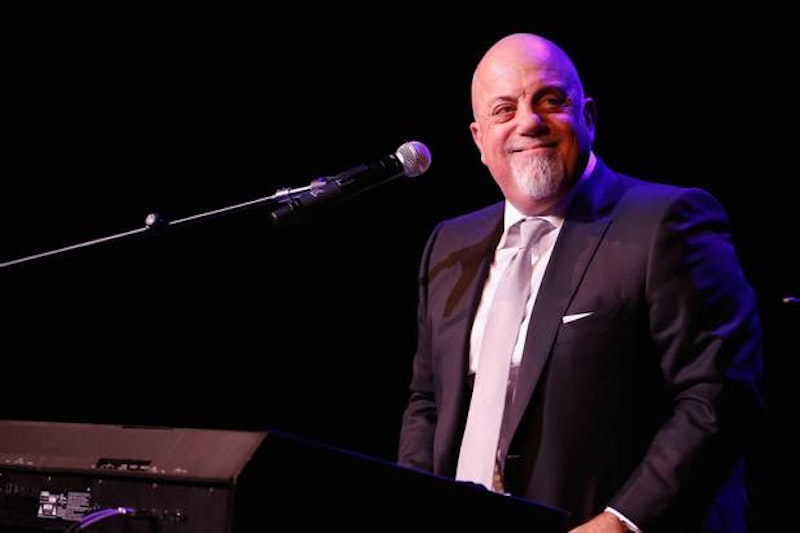Happily for my daughter but sadly for me, we just ended two months of the Sirius XM Billy Joel channel playing in our car. She survived the first month without saying much, since she’s grown up on the light rock of the 1970s and she’s grown fond of the Eagles, Fleetwood Mac, and some inherited Bob Dylan (duplicates for upgrade) vinyl from her older sister (“Try to improve your music taste from mom’s”).
So her eyes rolled when I’d pick her up and the channel would be playing again (especially upon learning the one-month channel special was extended to two), but I couldn’t get enough of it. I’ve written on my love of Air Supply in the past, even went to see and meet them. No 70s soft hit is too soft for me. Bring on the Ambrosia.
Fellow Splice writer Noah Berlatsky is on the record with a scathing denouncement of Joel, who was entered in the Rock and Rock Hall of Fame by Ray Charles in 1999, has won six Grammys and had 33 top 40 hits in his career. With 150 million records sold worldwide, one of the best-selling artists of all time, and won the Kennedy Center Honors. So a lot of people besides me disagree with Noah’s opinion that he sucks.
Joel himself doesn’t think he’s that fantastic, and it’s one of the things I love about him. His humility, ability to embrace a certain level of normality in life and music to me is what makes him a talented American songwriter. His music is about everyday living. His voice isn’t particularly brilliant. I think his piano playing is—and there are countless examples of that, not necessarily on many of the pop songs everyone is used to hearing but on a number of his instrumental and orchestral pieces that are far lesser known (forget “Piano Man”—ever seen Joel play “Root Beer Rag?” or the delightfully folksy “Travelin’ Prayer?”).
The two-month Sirius channel gig was an amalgam of Joel music interspersed with narration by him, his daughter or other musical guests about the inspiration for his music, stories behind the writing of much of his music, and historical passages from his life. His Jewish parents fled the Nazis to come to New York, his father eventually abandoning the family to leave his single mother to his sister and Joel to a meager childhood. He recalls his earliest Christmas, the only gifts under tree: a box of crayons and a coloring book they had to share. Never whiny about his humble beginnings, he says it was a great Christmas, talking another time about using his first $40,000 paycheck to buy a grand piano, which he crammed into a tiny apartment and slept underneath.
So many of his songs, from “Downeaster Alexa” about his daughter to “And So It Goes” about a model he loved but knew would leave him, were described over the two-month run; it was fun to hear all the stories behind their creation. Nice to know he doesn’t love singing “Uptown Girl” (my least favorite Joel song) because it’s too high-pitched for concert and the falsetto bothers his throat. Man I hated that song in the 1980s, always preferring his 70s stuff.
Say what you will about his music—he stopped releasing albums after 12 (same number as the Beatles, he says) back in 1994 because he just didn’t have anything else to say. Yet he still performs to packed houses in his hometown every month. He’s about nostalgia. My kids know “She’s Always a Woman” will play at my funeral because it’s the best “well she was kind of shitty but we loved her anyway” anthem ever. People aren’t wrong about their love for the guy, popular doesn’t have to be bad, and the best thing about him is he doesn’t think he’s anything extraordinary.

